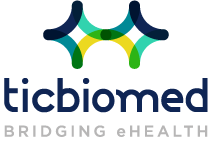The challenge
Healthy life expectancy is society`s new challenge. In the 21st century it is no longer a question of living longer, but of living longer and better. We are facing a paradigm shift. Ageing from now on is going to be healthy, active and technologically connected.
eCare is looking for a digital health solution to avoid frailty. We would deliver a disruptive digital solutions for the prevention and comprehensive management of frailty to encourage independent living, wellbeing and to relieve health and care services budget pressure
Know more about the project
 A quarter to a half of people over 85 years are frail.
A quarter to a half of people over 85 years are frail.

Who we are












